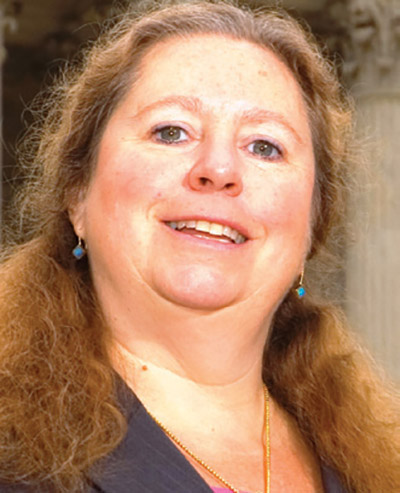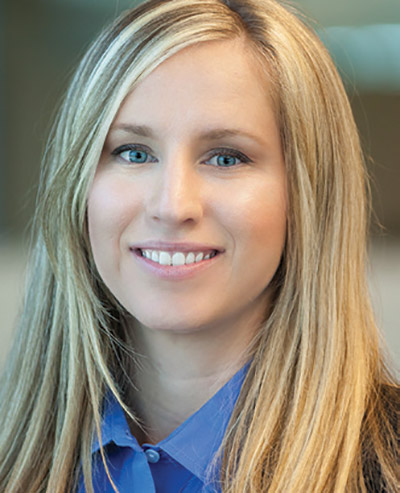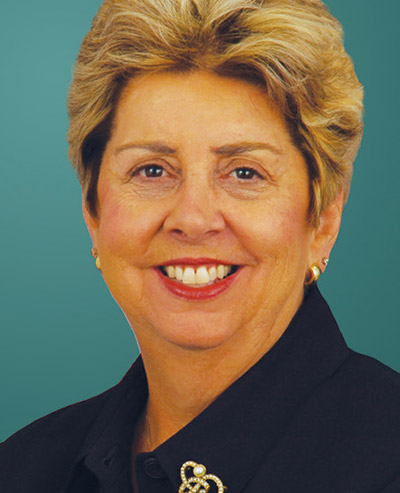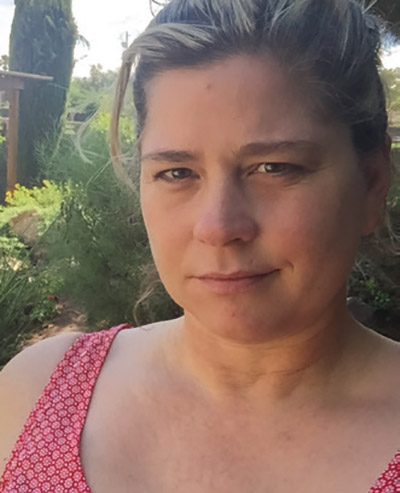Originally published in Safety + Health Magazine – September 2016.
A woman can be a rare face in safety, particularly in leadership roles. When Safety+Health conducts its annual surveys of safety professionals, women consistently make up less than 30 percent of respondents.
S+H spoke with five female safety pros about challenges they’ve faced, obstacles they’ve overcome and lessons they’ve learned in the field. Three of the women belong to the newly created National Safety Council Women’s Caucus, which aims to offer support and networking opportunities for women in safety.
Adele Abrams

SAFETY+HEALTH: What are some issues facing female safety professionals?
ADELE ABRAMS: One problem that has faced a lot of women who try to get into the safety field is lack of mentors. People who have been more experienced safety and health professionals tended to be male. They tended to look for other young men they could mentor and bring up. They may feel threatened by women entering their field. That can be a challenge because mentorship is very critical. That’s one of the things we hope to do in the caucus, create enough women like myself, who has been working in safety 25-30 years. We can help bring along some of the younger women getting professional certification or looking to break in, especially in some of these traditionally male-dominated areas like construction.
S+H: What is your personal experience?
ABRAMS: I got into safety in the construction field in 1986. Right after I was hired, I was newly married. I looked through the handbook. I didn’t see anything about maternity leave. I asked a woman who worked there. She said, ‘Look under termination.’ It said, ‘Your employment would be terminated at the seventh month of pregnancy.’ You can’t get away with that legally anymore. … Well, I didn’t get pregnant. I eventually moved to another job. I was handling the OSHA program for the employer. I found very typically I would go to a meeting and I would be the only woman there. I’m not a shy person. Before I got into safety, I was a radio disc jockey for 14 years and I was the first woman doing a rock-and-roll show at the station in 1974. I feel like I’ve been a little bit of a trailblazer. It wasn’t my first time at the rodeo when I came into construction and found I was the only woman there. I did find I had to be twice as prepared, twice as articulate in order to get my opinions heard. … After working in construction for three years, I got hired into the mining industry. That was even worse in some ways. There has been longstanding folklore that women were bad luck in mines. There were laws on the books well into last century that prohibited women from working in mines in the U.S. That has changed. … Part of the problem [of few women safety professionals] is men working in safety may be supported by their companies more in terms of getting professional certification. There are still some of these outmoded assumptions that a woman is going to work here for a while; then she’ll have kids and leave. These days, most families do need two incomes. Even if women step onto the ‘mommy track’ for a while, they want to be able to get back and resume their careers.
S+H: Did you experience obstacles?
ABRAMS: I have been treated fairly well. I’m pretty assertive. I worked for an association, so I was seen a little bit as an authoritative figure. Out of 10 senior staff, I was the only woman. Even after I graduated law school, I had the executive vice president say to me point blank, ‘I don’t care how many degrees you get, we’ll never have a chick as vice president.’ My immediate response was, ‘That’s a pretty dumb thing to say to somebody who just graduated law school.’ It was an instrumental factor leaving that job, going into private practice and starting my firm and consulting business. I thought going to law school was going to help me break through that glass ceiling. Then I was smacked back down again. … You might see women who are safety managers, safety directors, very rarely vice president within a larger corporate safety program. That’s something that needs to change. Recognize women are qualified for these positions. Don’t discount them because of their gender.
S+H: What are keys to your success?
ABRAMS: [Laughs] Hard work and a thick skin. When you’re working in two male-dominated industries, I just had to learn to kind of laugh it off if people made comments. ‘Aren’t you afraid you’re gonna break your nails if you do that? You can’t be climbing ladders to go down into a mine.’ Sure I can. … The other part is staying current on issues. Safety is a dynamic issue. … The relationships have been critical, finding people you can trust, are not threatened by you and willing to share their knowledge.
S+H: What advice do you have for other female safety pros?
ABRAMS: Network, network, network. Look for ways to be involved in associations to improve your visibility. … It seems like women have to be more qualified somehow to hold the same position. My answer is become more qualified, get your professional certification. Get your OSHA instructor card. That gives you some portability so you can move a little easier from one industry to another or one employer to another. Keep your skill set current. Go to things like [the National Safety Council Congress & Expo] and the educational sessions. Go to ASSE professional development conferences. … [Through networking] you hear what companies are more favorable to women, what obstacles other people have met, how they circumvented those obstacles to be successful. For the older women, be a mentor. For the younger women, seek a mentor. It doesn’t have to be a woman, but you may find that they will be more helpful to you.
Andrea Ball

S+H: How did you get into this line of work?
ANDREA BALL: Twenty years ago, I was hired as an administrative assistant for a DuPont facility. The hiring manager looked at me and said, ‘I don’t want an admin. I don’t need an admin. I need another safety technician.’ I came into the line of work knowing nothing. My degree is actually information technology management. I learned safety from the ground up. … I love it. There’s nothing I’d rather do. No two days are the same. I never know what’s going to pop up next. It is a challenging career, but it’s a very rewarding career. You have a rash of slips, trips and falls – you go in and you try to find out why people are slipping and falling in the area. Is it the shoes? Is it the flooring? Is it water? Once you find the answer, you have to figure out a way to fix the problem. Then you have to work with the team to get it fixed and maintain the safe condition. It is a challenge because you have to get people to work together toward a common goal. The reward is at the end of the day people go home in as good or better condition than they came to work. A safe work environment is a happy work environment.
S+H: What are issues female safety professionals face?
BALL: I’ve worked in manufacturing, municipality, construction and now hospitality. Each one of those had different challenges for women. In manufacturing, I was one of four women who went out into the plant, so they weren’t used to seeing women there. In construction, many times I was the only woman there. In municipality, there were certain areas where there wasn’t even a women’s restroom. When it comes down to hospitality, it’s fairly women-friendly or, I should say, gender-neutral. I have found over the past 20 years some of the challenges I faced coming into the profession are no longer there. The workforce, they’re more used to seeing women in this capacity. I’ve noticed at [NSC and ASSE] conferences there’s been a dynamic change in the room, where many times I walked in the room and I’d be the only female there. Now it’s getting close to that 50-50 mark, so I am seeing more women in the profession.
S+H: Looking back at the manufacturing and construction jobs, were those a challenge?
BALL: Yes. Looking back at the construction one, they took bets on how quickly they could get me to quit. When I hit the two-year mark, they got very upset because nobody won. They would try to embarrass me. They were fun – I would laugh at them. I had just spent 10 years being one of a few females that went out into a manufacturing facility. It was a DuPont plant – it was always respectful. Some of the guys would make some off-color jokes. I usually ignored them. It never bothered me. It never struck me as odd that I was one of the women going out there. In this field, you have to have a good sense of humor. You have to walk in with an open mind. I’ve always found having a sense of humor will ease a lot of tension. I never wanted to be treated differently because I was a female. I wanted the guys to treat me like I was one of the guys. At every job I’ve had, I’ve been able to achieve that.
S+H: What are keys to your success?
BALL: My sense of humor, persistence, having an open mind.
S+H: What is the most valuable lesson you’ve learned from your career?
BALL: Have faith in your own knowledge and ability.
S+H: What has made you stick with a career in safety?
BALL: At the end of the day, I know I’ve made somebody’s life better. I know I have prevented an injury or, in some cases, a fatality. I know this person is going to go home. One of the best stories I can share: I was at the grocery store with my family. An employee’s wife walked right up to me and said, ‘Thank you for all you’ve done. I know my husband is going to come home at the end of the shift because of everything you’ve done.’
Marisa Fortin

S+H: What challenges do female safety pros face?
MARISA FORTIN: Maybe sometimes we have to earn our respect a little bit more because we’re female and maybe people don’t think we know what we’re talking about. A male safety professional, if he has an idea or a solution, he might get instant buy-in from peers, where possibly a female might have to argue the point differently to get the buy-in. When we want to persuade or bring up an idea, we have to sell it differently. … We have to use the word “we” a lot instead of “I” to make it for the better of the group. I’ve been in groups, talking about ideas or solutions. I would bring up an idea and it would get shot down. A guy would have a similar idea and his idea would get sold. I had a conversation with a group of women weeks ago, and three in the room had that problem. You’ve got to have a team mentality and you have to sell your ideas based on how it’s going to better the team. … When I was younger and green with hardly any field experience, trying to talk to guys who had been doing this stuff for 30 years was a barrier. They knew a lot more than I did, so why would they want to listen to me? It was challenging. I’ve had to definitely have my boots on the ground and get good field experience so I can be taken seriously. It is definitely an experience thing, but being a young female does make it more challenging. They’re not used to women, especially a younger one at that. They hardly ever see the ladies in the field. That was overcome by being genuine. Being a great listener has helped me with that immensely, soaking up information all these guys have to share, asking questions. Everybody likes to share what they do and their ideas.
S+H: What other obstacles have you faced?
FORTIN: One of my first job interviews to get into construction safety, [the interviewer] asked me things like, “You don’t get offended easily, do you?” … Sexist remarks have been made. I just overcome it, kind of brush it off and have thick skin. As long as it’s not menacing or hurtful in any way, then it’s not a problem. A sense of humor is a good way to overcome that gender gap. I’m not saying to make light of it, but it’s good to be able to joke around and just be one of the guys. I worked at Big O Tires before I was even 18 [as a tire technician], and the guys would always stand in groups and talk and tell stories and jokes. That kind of experience and being able to do that with a group of men has helped my safety career because I’m able to stand in a group like that and be able to fit in. [The key was] listening and asking for help, never pretending that I knew all the answers. Was very humble.
S+H: Are you used to that now?
FORTIN: I think about it when I’m standing in a group of guys, how that has helped me and being able to keep up with the boys hanging out. This morning, I walked up to a jobsite. I was the only female in a group of 30 guys. That’s very common for me. I’ll be in a meeting, and I’m the only female or one of the few. … I use a little bit of a flamboyancy, giddiness, silliness, humor [to bring attention to safety]. I came out to a school we’re building. They were having their safety meeting. I run over to this group and say, “Good morning, boys!”
S+H: What advice do you give?
FORTIN: Soak up the knowledge from the older guys. … Show that nurturing side and how you care for people. You want people to get home safely to their families. You can talk about family a lot. Listen, ask lots of questions, get different perspectives on all sorts of scenarios.
S+H: How do you get more women involved?
FORTIN: I’ve volunteered for ACE [Mentor Program for architecture, construction and engineering]. I’ll speak to young kids, including ladies, encourage them to do a construction career and maybe safety. We have a group called Connecting Women based out of the company. We have monthly meetings, do job walks and teach them about safety. … We’re trying to promote women within our company and reduce this gender gap.
S+H: How did you get into this line of work?
FORTIN: I was in pre-med. Sitting with all these med students who were going to fix broken people, I wanted to do something more proactive that would keep people from getting hurt. Therefore, I liked what I found with safety, [being] very proactive at helping people. The other side I like is the variety, being out in the field or going to an office, going to a huge construction site, renovating a building. … I love seeing something built. I can drive around certain cities in southern California, Torrance. I can point out that I worked on this school. It’s really neat to have that legacy – all these cool places I built or renovated, get to go somewhere different every single day, talk to a variety of people and make all these great relationships.
S+H: What has made you stick with a safety career?
FORTIN: There is much glory to be had in the safety profession with the greatest glory coming from the ability to impact people in the most important way – their livelihoods. This ability to make an impact on people’s lives is the main reason I have dedicated my career to being a safety professional.
Rose McMurray

S+H: Why are so few women in safety?
ROSE MCMURRAY: Most of the transportation sector was a fairly nurturing place for women to be recognized and achieve high leadership positions. Within transportation, there were some sectors not as hospitable to women. The places I worked were mass transit and road safety. Seeing women in leadership positions was not unusual. [The Department of Transportation] has been a leader in the government in advancing women’s ambitions and careers. We’ve had a few secretaries of transportation who were female. Under their watchful eye, they recognized institutional barriers that needed to be eliminated and made sure there were programs of advancement for women.
S+H: What issues do women deal with?
MCMURRAY: Oftentimes, people judge you based on your gender or race. I’ve always felt the best defense against those biases is hard work and being competent. I was often the only woman in meetings. I did emergency planning and emergency response for DOT for a while. The White House had us dealing with a transportation crisis. [During a meeting], one man in particular moved his seat away and moved his body away from me. I was planned and had organized. I had thought beforehand what I was going to say and do. By the end of the meeting, he was completely pointed toward me and became quite the ally eventually. When you show you’re competent, prepared, collaborative, have all the leadership skills, regardless of whether you’re a man or woman, you will be successful.
S+H: What advice can you offer?
MCMURRAY: What I would say to young people: It’s a great profession. We need the next generation worrying about others and seeing their commitment to others, a way to make them safer. … I used to give speeches to women when I was at DOT. I got into leadership; I was about 28 and starting a family. Some of the women wanted to know, ‘How do you balance it all?’ I used to have a speech about the choices you make, choices of what career you want to pursue, family arrangement. You have to think through the consequences of those decisions. Look at others around you and emulate those traits you see are effective. Be balanced, know your work, but also be collaborative and cooperative. … Learn from behaviors of others which are not successful, people who are perhaps brusque, not prepared, complain or have negative attributes. Try to also learn from them. Don’t adopt those behaviors.
S+H: What has made you stick with a safety career?
MCMURRAY: This field is in my blood. I tend to see the world around me in risk assessment terms. When I travel abroad, I see public safety hazards that would not be allowed in the USA. I have to fight the inclination to find the proper authority and point out the risks.
Jennifer Tabor

S+H: What issues do women in safety encounter?
JENNIFER TABOR: In the construction field, the biggest problem they have is getting men to take them seriously and listen to them and not blow them off, especially if they don’t have any construction training themselves, they’re all just book learned. These guys are looking at someone telling them how to do something safe. ‘Have ever actually done this work? Do you even know what you’re talking about?’ If a woman is going to go into construction safety, it’d behoove her to … understand more of the field they’re dealing with. … She would have to know the people she’s dealing with, not just give a blanket “This safety works for this; this is going to work this way for you also.”
S+H: What issues have you seen?
TABOR: Because I can speak in their language and they know I’ve dealt with the issues before, they listen a little bit more to me. Being labor and union, my issue is with the contractors, trying to get them on the same page. It’s beneficial to everybody that everybody’s safe in the same way. … There’s still contractors who give the lip service. They say, ‘You have to stay safe. Sign this paper.’ In actuality, they go out in the field and they expect you to do this [work], whatever it takes.
S+H: How are you working to bring more women to the field?
TABOR: An outreach program [through the union is] encouraging women, girls out of high school who might not be going to college or single moms trying to find a better job, saying, ‘You can support yourself. This is a career you might have to get your hands dirty, but it’s well worth it.’ A lot of women aren’t aware these jobs are available for them.
S+H: How have issues for women improved?
TABOR: I’ve been a wireman for about 20 years. I’ve seen huge changes in attitudes, not just toward women but safety also. We’ve been around long enough now, guys and younger kids don’t see the gender roles quite as solidly as two generations ago.
S+H: What attitudes did you encounter early on?
TABOR: You still get them. There’s at least one in every crowd that doesn’t feel this is the kind of work women should be doing. They’re quieter about it these days, but there’s still harassment. There’s always someone who needs to pick on somebody else, and as a woman, you’re usually the first choice. It’s not as common when I first got in. My mom, it was way worse for her. … A lot of it is going to weed itself out as the older generations retire. With that leaving, women will feel more comfortable stepping into these roles.
S+H: How have you dealt with negative attitudes?
TABOR: Usually with humor. They call you out in front of other guys. ‘She can’t do this. She’s going to break a nail.’ If you can come back with a witty comeback that puts egg on their face, they basically drop it. If you allow it to visibly affect you in front of them, they’re going to keep doing it. I’ve never had a situation I had to bring up harassment charges, fortunately. I know some who have. … One of the big [comments is] ‘Oh look, a girl is doing it.’ [My comeback is] ‘Yeah, it’s so easy a girl can do it.’ You’re just [showing] ‘I am doing it and I’m doing just as good of a job as you are.’
